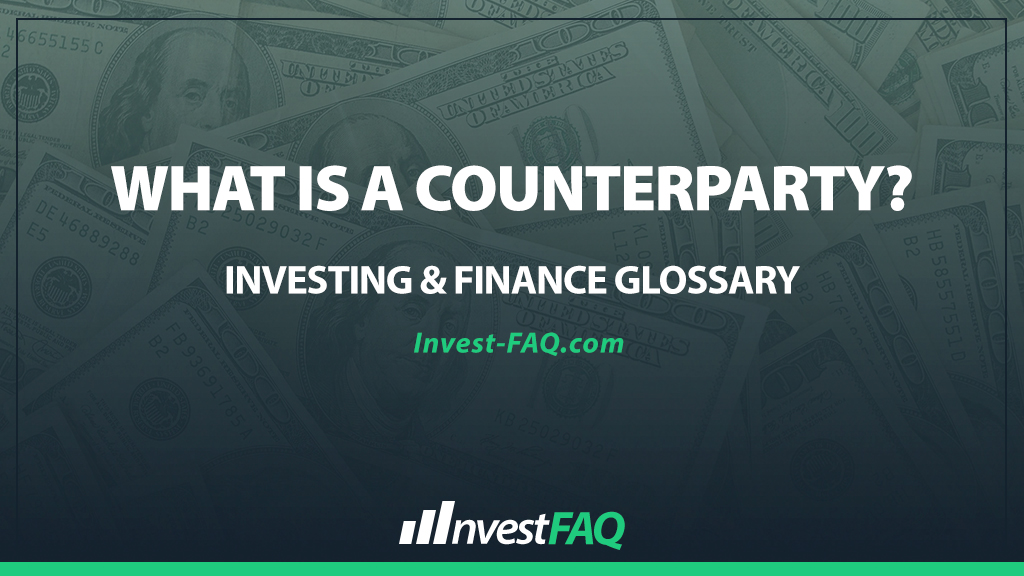
Counterparty
Contents
A counterparty is any entity on the opposite side of a financial transaction. In business dealings, this term specifically refers to the other party involved in a contract or financial agreement, whether it be an individual, company, government body, or any entity capable of entering into legally binding transactions.
In the realm of business, counterparties play a critical role in a wide range of transactions, from simple purchases of goods and services to complex financial agreements like loans, investments, derivatives trading, and more.
Understanding the counterparty’s creditworthiness and reliability is crucial, as it directly impacts the risk associated with the transaction. Businesses often assess counterparty risk to ensure they are engaging with entities that can fulfill their obligations under the contract.
Example of a Counterparty
Imagine “ABC Corporation” enters into a derivatives contract with “XYZ Bank” to hedge against interest rate fluctuations. In this scenario, ABC Corporation and XYZ Bank are counterparties to each other. If the interest rates go up, as per the agreement, XYZ Bank compensates ABC Corporation for the increased costs. Conversely, if the rates go down, ABC Corporation pays XYZ Bank for the potential savings lost.
In this example, both ABC Corporation and XYZ Bank are exposed to counterparty risk, which is the risk that the other party might default on the contract. The performance of each entity under this derivatives contract depends on the interest rate movements and the financial stability of the counterparty.
Such transactions require thorough due diligence and risk assessment practices to mitigate potential losses and ensure both parties can meet their contractual obligations.
Types and Uses in Business Scenarios
Counterparties are involved in various business scenarios, including:
Trade Finance: Where companies enter into agreements with suppliers or buyers across borders.
Securities Trading: Involving the buying and selling of stocks, bonds, or other securities where counterparties assume opposite positions.
Loan Agreements: Between borrowers and lenders.
Investment Deals: Where investors become counterparties to the entities they invest in.
The significance of understanding and managing counterparty relationships lies in safeguarding the financial interests of the involved parties and ensuring the smooth execution of agreements.
Significance for Investing & Finance
From an accounting perspective, identifying counterparties in transactions is essential for:
Risk Management: Assessing and managing counterparty risk is vital for financial stability and compliance with regulatory requirements.
Financial Reporting: Accurate recording of transactions involving counterparties is necessary for transparent financial statements and adherence to accounting standards.
Audit and Compliance: Understanding counterparty relationships helps in audit processes and ensuring transactions comply with legal and financial regulations.
In summary, a counterparty is a fundamental component of business transactions, whose assessment and management are crucial for minimizing financial risk and ensuring compliance.
Proper handling of counterparty relationships is essential for the integrity of financial operations and the protection of a company’s assets.
FAQ
How does counterparty risk affect a company’s decision to enter into a financial agreement?
Counterparty risk influences a company’s decision-making by assessing the likelihood that the other party may default on the agreement, which could lead to financial losses, thus necessitating thorough risk assessment and due diligence before finalizing any transaction.
What measures can companies take to mitigate counterparty risk?
Companies can mitigate counterparty risk by conducting comprehensive credit and risk assessments, requiring collateral, entering into netting agreements, or purchasing credit default swaps to insure against the possibility of default by the counterparty.
How does the concept of counterparty differ in bilateral vs. cleared transactions?
In bilateral transactions, the counterparty risk is directly between the two parties involved, whereas in cleared transactions, a clearinghouse acts as the counterparty to both sides, significantly reducing the counterparty risk for the original parties.
What role do counterparties play in the derivatives market?
In the derivatives market, counterparties are entities that enter into a financial contract specifying conditions under which payments or asset exchanges occur based on the value of an underlying asset, playing a critical role in hedging, speculation, and risk management strategies.
